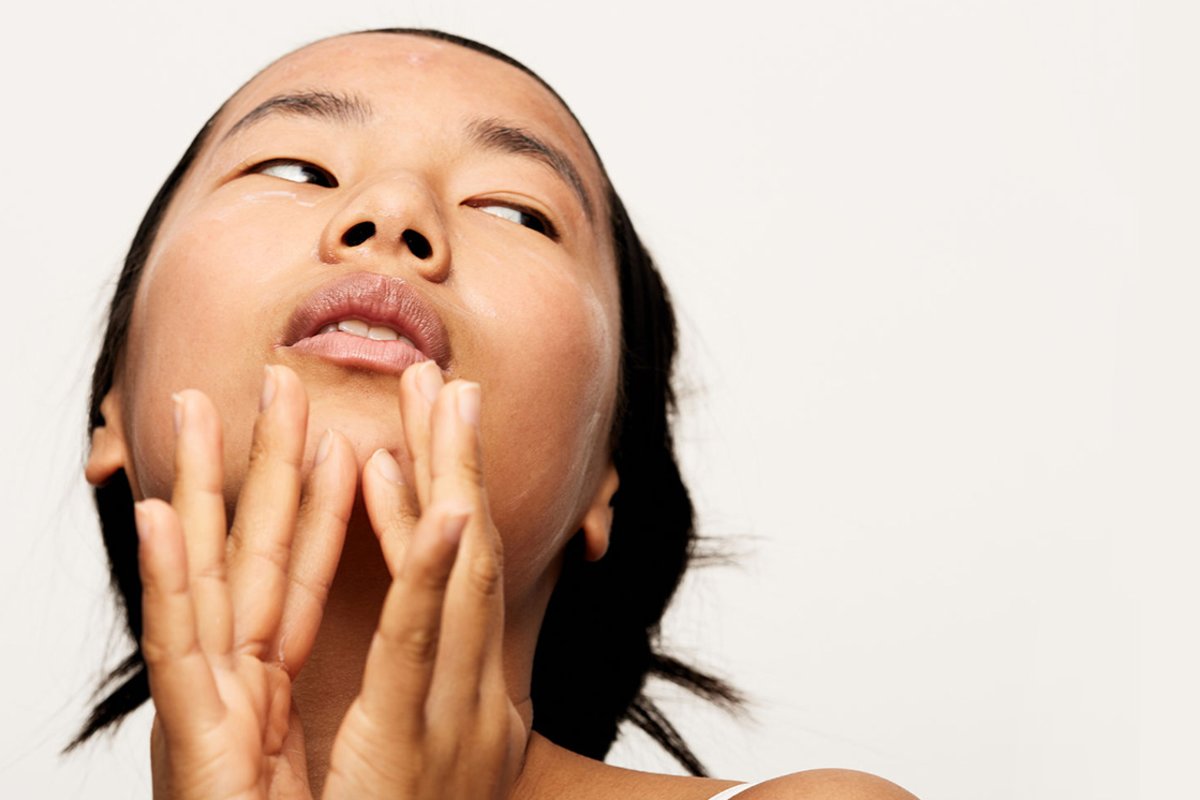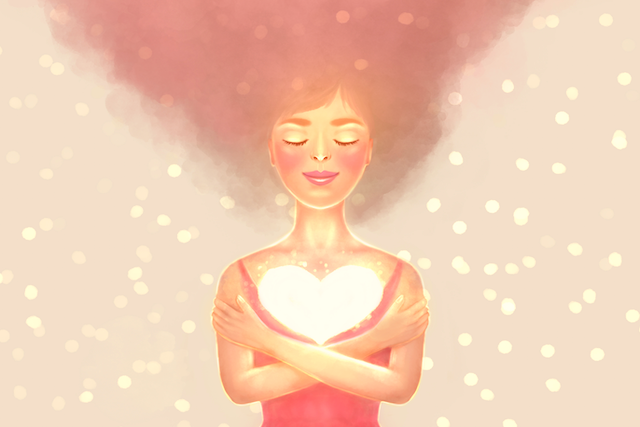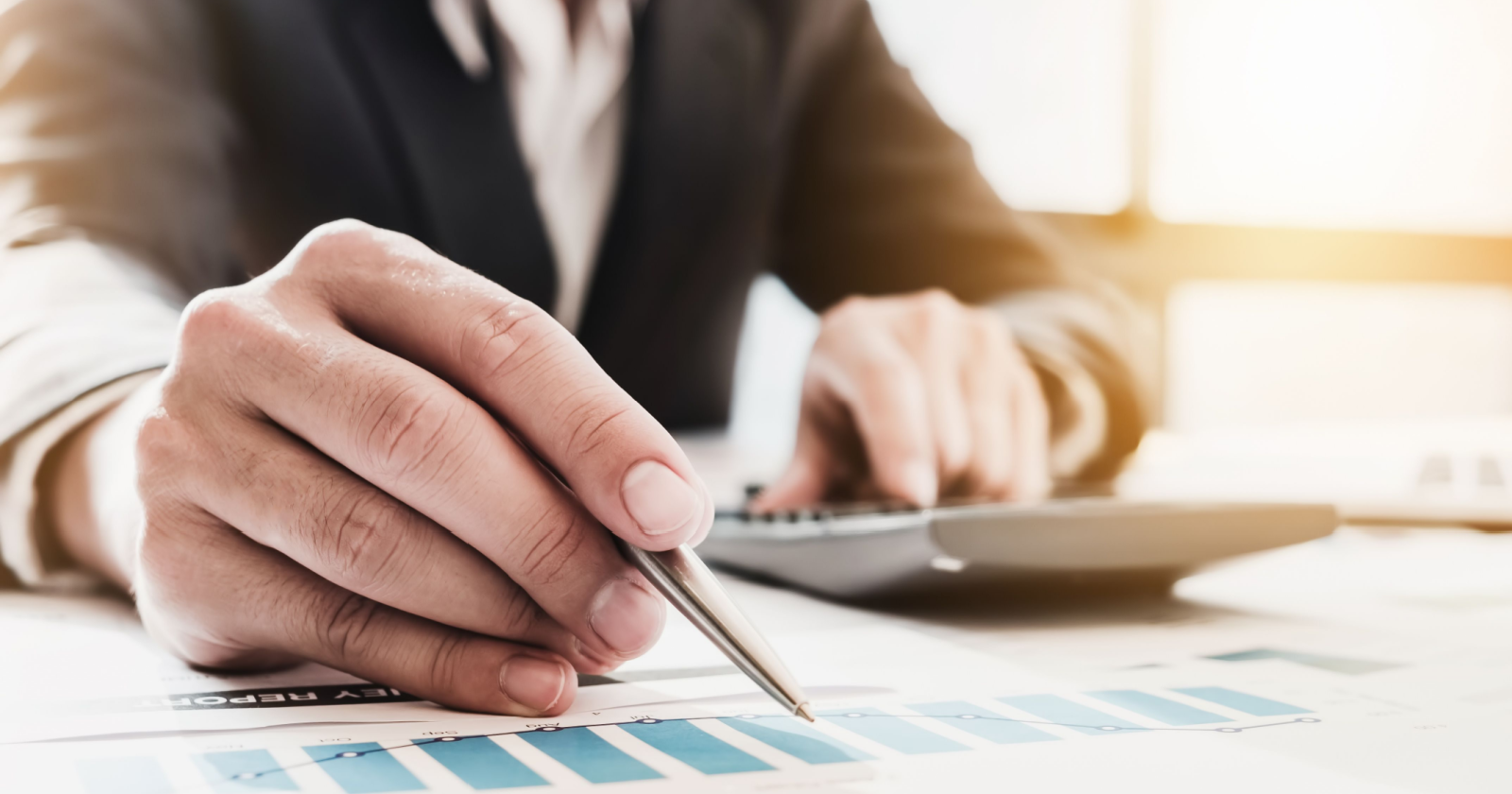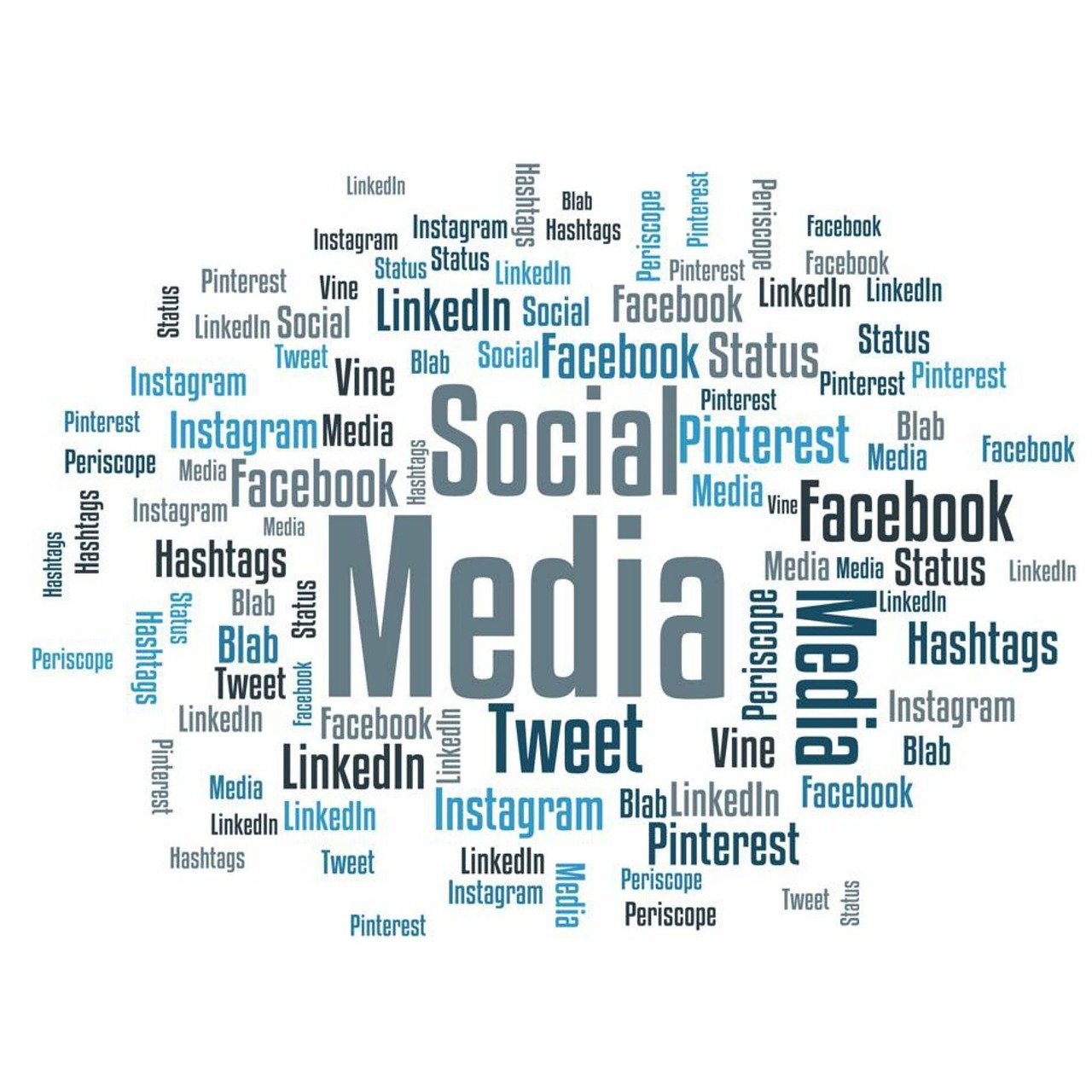This One Technique Can Actually Soften Wrinkles & It Doesn't Cost A Dime
Truth!

When was the last time you touched your face? I'm not talking about scrubbing in a cleanser, dabbing on an eye cream, or even scratching the occasional itch—when was the last time you put your hands on your skin and really connected with your pores, traced your fingers over grooves and divots, or felt the warmth of your complexion underneath your palms just for the hell of it? I'd wager it's been a minute.
There's this pervasive notion in the beauty industry that touching your face is an absolute evil, as it's a recipe for clogged pores and bacteria. It's a valid concern, sure, but completely flipping the script and ignoring your skin is not the answer. So I'm going to give some advice that might be a bit jarring to the average beauty fan: Touch your face! Feel your skin! You may encounter some noteworthy skin care benefits, especially if you do it strategically, like with a relaxing face-tapping technique. Below, experts share the perks of getting to know your complexion.
Emotional Freedom Technique (EFT) tapping involves tapping your fingertips on specific meridian points on the body and face as you verbalize your thoughts (for the purposes of this article, I'll just refer to it as face tapping). It's lauded for providing quick, in-the-moment stress relief—for some, it even works in as little as five minutes. Here's a quick TikTok demonstration, if you'd like a visual.
"What it does better than any [technique] I've seen is it quickly takes down your physical and emotional dysregulation," licensed clinical social worker and master EFT trainer Robin Bilazarian, LCSW, DCEP, tells mbg. "It kicks us from the sympathetic nervous system of fight or flight into the parasympathetic nervous system of rest and digest, and it does that so quickly." That said, research shows tapping can be effective at decreasing anxiousness and psychological distress; of course, managing stress is a solid move for skin health regardless, but the practice may have even more skin care benefits.
Aside from the relaxation benefits of tapping, the sensation itself can increase circulation in the skin, which helps support healthy blood flow and an even, glowing complexion—plus, blood flow is crucial for firming the facial tissue and smoothing fine lines.
"[It] increases blood circulation and improves lymph flow to help us keep up levels of skin cell function and lymphatic drainage," says board-certified dermatologist Ava Shamban, M.D., founder of SKINFIVE. "A sluggish system leads to sallow skin. Circulation and oxygenation are always supportive for delivering nutrients, plasma, hydration, and essential minerals through the network skin and to keep our sebaceous networks flowing."
It's even more important to maintain that blood flow when you're feeling anxious. "When we are agitated or stressed out, everything about us is robbing blood to go to major muscles," Bilazarian notes. Think about how the color may drain from your face when you're met with a bout of anxiety. Your brain and body are trying to protect you from the threat at hand, so functions like digestion and circulation are put on the back burner (that's also why people may face an upset stomach when stressed). With face tapping, you're helping bring that blood flow back to baseline, thus signaling to your body that it's OK to relax.
And at the risk of sounding like a broken record, stress management is skin care. According to Shamban, reducing stress is one of the best "anti-aging" treatments out there. "With these established sequences at specific acupressure points along with verbalization of thoughts, we are able to create a connection within ourselves, [and] harness our emotions or feelings to release them," she notes. "Thus, it may promote healing around some emotional or physical issues that have continued to hold us back."
Bilazarian even says one of her previous colleagues—board-certified psychiatrist and doctor of Chinese medicine Jingduan Yang, M.D.—uses the same points for his cosmetic acupressure practice. "He would watch me [train], and he would say the points that I was using were the exact points he would teach people to use for his acupressure face-lift," she recounts. The link between mental health and skin health has never seemed so clear.
Zooming out even further, tapping gives you the opportunity to really connect with your skin and address any emotions that may arise during the practice. When you put your hands on your face and really feel the texture of your pores, it's way more difficult to criticize any "imperfections" you might have.
Shamban echoes the sentiment: "Instead of looking into a mirror and judging or criticizing, feeling and tapping may enable us to have a more tactile perspective and greater appreciation of our face, features, and skin," she says. "Tapping may change our perception, create a greater connection, and lead to a more beautiful view of ourselves." And when you treat your skin with the love and care it deserves, you'll often yield a way brighter glow.
Says Bilazarian, there are nine common points for face tapping: the side of the hand, top of the head, inner eyebrow, outer eye, under-eye, under the nose, under the lip, on the collarbones, and the underarms. If you'd like to go the extra mile, she says you can spend some time on what she calls the "gamut spot," which is on the back of the hand between your pinkie and ring finger.
No matter which points you choose, you'll want to tap light to medium pressure (like you're drumming your fingertips on a desk) and visualize the problem or situation that's making you anxious. Move through each of the meridians and remember to breathe along the way. "Not an exaggerated breath, definitely not a yoga breath… It's more of a pacing," she explains. "It's more to slow you down a little bit." You can also end your practice with a heart hold, which she says can be super calming.
Face tapping comes with a load of skin care benefits; not only does promoting blood circulation lead to a brighter glow, but reducing your stress levels is A+ for skin health in general. Of course, you'll want to make sure your hands are clean before touching your face—otherwise, you may wind up with a different set of skin concerns (i.e., clogged pores). However, it's time we overcome the collective fear of touching our faces. Connecting with your features has some pretty impressive emotional and physical perks.

 Koichiko
Koichiko 
































